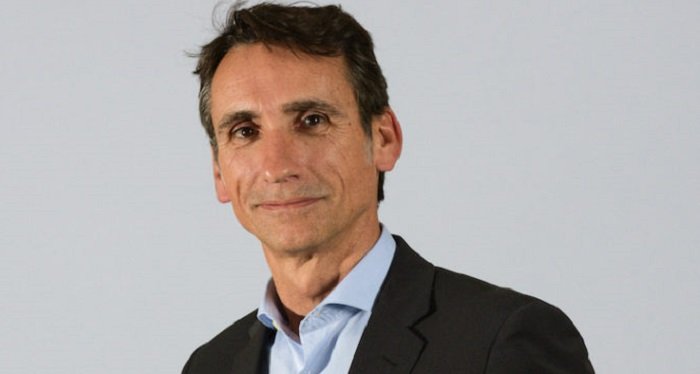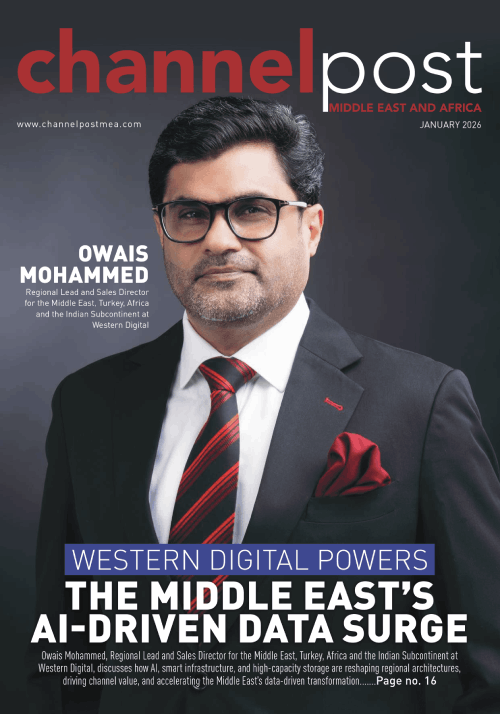Channel Post speaks to Alain Penel, the Regional Vice President for Middle East at Fortinet, about his company’s outlook for 2018

What were the major technology and market trends in 2017?
The Fortinet’s security fabric has been a major technology focus for us in 2017. From a network security vendor perspective, NGFW, and sandboxing technologies were in demand owing to a growing threat landscape and the need for organizations to defend themselves from zero-day attacks.
Do you believe any technology buzzwords from 2017 will really kick-off in 2018?
Digital transformation will continue to dominate 2018. However in our recently released Threat Landscape Report for Q3 of 2017, our findings are drawn from millions of sensors deployed inside production environments across the globe, that focuses on three key threat indicators: exploits, malware, and botnets. I believe these threats will continue into 2018 as well.
We also predict the rise of Hivenets and Swarmbots, while ransomware of commercial services will be big business. The cybercriminal marketplace is very good at adopting the latest advances to more effectively detect and exploit vulnerabilities, evade detection, adapt to complex network environments, and maximize profitability. Adversaries will begin to leverage automation and machine learning in their attack tactics, techniques, and procedures (TTP).
How has 2017 been for your company and business? What were your major achievements in the year 2017?
2017 has been a profitable year for Fortinet. We are continuing to grow across markets, including Pakistan, for which we have appointed a new distributor – Aptec. We have seen a positive uptake in the Fortinet Security Fabric concept across organizations which makes us confident of the technology’s growth in 2018 as well. 2017 was a good year for us from a channel enablement perspective as we succeeded in certifying more than a thousand partners in the Middle East region.
Our aim is to constantly encourage our partners to achieve the right level of certifications, including the NSE 8 level- which is the highest level of certification a partners can achieve. We also launched a number of new additions and alliances to the Fortinet Security Fabric, while willing new customers across the region, increasing our market share and vertical penetration.
Did you enter / expand your operations into new markets in 2017?
We are already maintaining a presence across the region, but have consolidated our presence in Pakistan and Oman, and have strengthen our channel presence in these countries to stay close to our customers.
How was the technology and telecom market in general in 2017? Was there any increase in business?
From Fortinet’s perspective, it’s been quite active. Telco’s are a key vertical for Fortinet and have signed a number of MSSP agreements with leading telco’s.
How do you foresee opportunities for 2018?
We are optimistic about 2018. Our digital economy is powered by technology innovation that creates opportunity in cybersecurity. The proliferation of online devices and the hyperconnectivity of today has created a criminal playground that is increasingly difficult to secure.
At the same time, adversaries are leveraging automation and artificial intelligence at an unfathomable pace and scale across the ever-expanding attack surface. Attacks such as WannaCry and NotPetya foreshadow the massive disruptions and economic impacts possible in our near future, resulting from the ransom and disruption of commercial services or intellectual property. Fabric-based security approaches that leverage the power of automation, integration, and strategic segmentation are critical to combat the highly intelligent attacks of tomorrow. We believe the Fortinet Security Fabric will help organizations address the complex threat landscape.
What sort of strategies do you have in place for 2018?
Our strategy is simple – is to continue leveraging the Security Fabric approach and focus on meeting the security demand of enterprises, oil & gas, banking and financial sector, education and the public sector as well as telcos. We will also focus on meeting the unique security needs of the SME market.
Will you be investing more in terms of expansion of your market reach, channel programs and general marketing?
Absolutely – we will continue to invest in strengthening our resources and our channel community to expand our reach and crack new verticals and customers. We will continue to encourage our partners to invest in honing their skills through our NSE partner training and certification programme.












